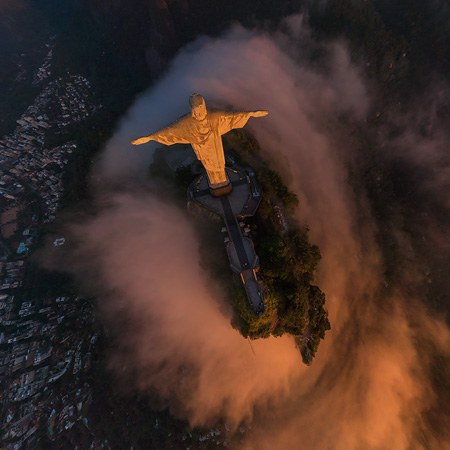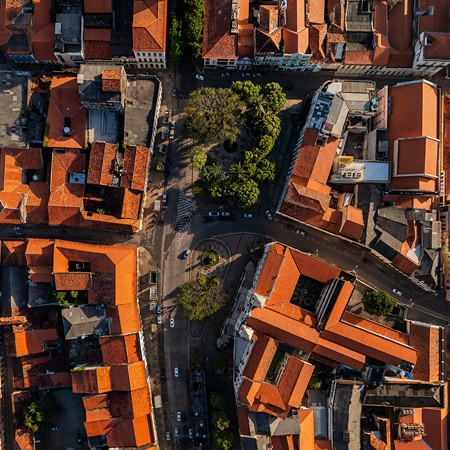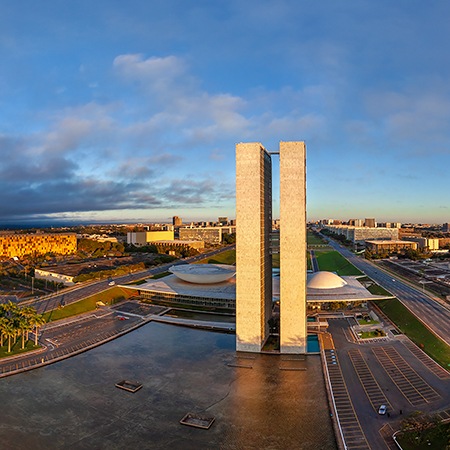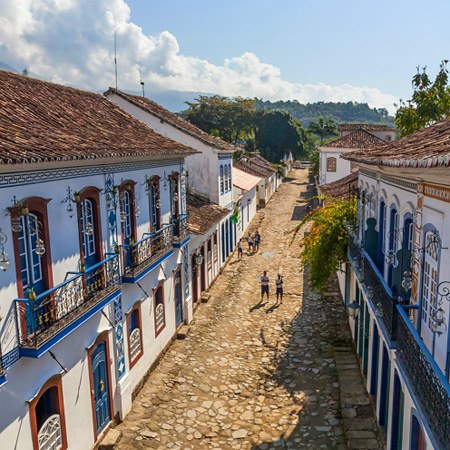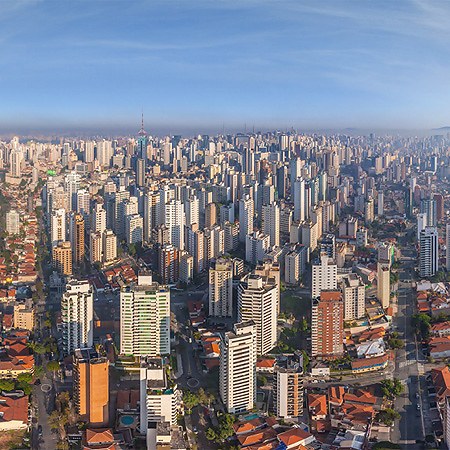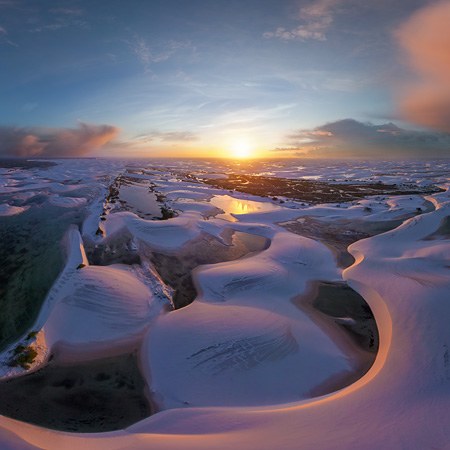Christ the Redeemer Statue, Rio de Janeiro, Brazil
Please note, that this is the first episode of our 360 movie about Rio de Janeiro. Stay tuned!
Each great city has its own landmark. Eiffel Tower in Paris, The Statue of Liberty in New York, Opera house in Vienna, and majestic Kremlin towers, famous Moscow landmark. But today we want to tell you about the statue of Christ the Redeemer (Cristo Redentor) in Rio de Janeiro.
On a 700-meter high Corcovado mountain stands a giant figure of Christ, his arms are stretched out towards the city, as if blessing the land. Each year, nearly 2 million tourists and residents climb to the top of the mountain to take a photo besides the monument "for good luck."

The exact dimensions of Christ the Redeemer statue in Rio de Janeiro are as follows: the height of the figure is 38 meters, the height of the pedestal — 8 meters, weight — 1145 tons, arm stretch — 30 meters. It is believed that the idea behind the creation of the statue came up in 1922, on the 100th anniversary of Brazil's independence. It appears that the story of the statue goes with its roots deep in the past.

Back in 1859 a Catholic priest Pedro Maria Boss was struck by the majestic beauty of the mountain of Corcovado while visiting Brazil. It was he who proposed to build a monument to Christ on top of the mountain. But at that time his aspirations were hard to accomplish: first the Brazilian Court had no money, and then the monarchy was replaced by the republican government. And since the church was legally separated from the state, the idea of building a monument was forgotten.

The mountain was too striking to be empty, and in the XXth century Catholic organizations of Rio de Janeiro raised the issue again. Signatures were collected, funds were raised and, as a result, this ambitious project was able to get more than 2 million reals ($250,000), a huge amount of money for that time.
Administration of Rio de Janeiro announced a competition for the best design, which attracted a lot of contenders. The winner was Heitor da Silva Costa. He proposed that the posture of Jesus Christ with the arms stretched to the sides would symbolize a cross, and a massive pedestal would symbolize the globe. Thus, the sculpture serves to give people one thought — "Everything is in God's hands."

The final design of the monument was done by artist Carlos Oswald. By proposing a number of corrections, he rejected the idea of a globe. And then, finally, everything was ready for the monument to be built.
The construction lasted for about nine years. For several reasons, first and foremost technological ones, the creation of a giant statue in Brazil at that time was impossible, so all parts, including the frame, were manufactured in France.

Disassembled parts were delivered to Brazil, and then transported by rail to the top of Mount Corcovado. The opening of the monument took place in October 12, 1931. This date is considered to be the "birthday" of the statue of Christ in Rio de Janeiro and is annually celebrated with a lot of festivities.
The statue was repaired twice — in 1980 and 1990, and in 2010 it underwent some cosmetic restoration: it was vandalized with strange inscriptions, such as "when the cat's away, the mice will play" (the meaning of this act remains unclear to this day).
In 1932 and 2000 the system of nighttime illumination was upgraded. In 2007, this famous Rio de Janeiro landmark was chosen as one of the Seven New Wonders of the World.

The statue can be reached by electric train or by mountain road. While being driving to the statue, you can't stay away from the window even for a second because Brazilian nature is so picturesque. Observation desks offer astonishing views of Rio de Janeiro: the famous beaches of Copacabana and Ipanema, "Sugar Loaf" mountain, the Tijuca National Park, the Atlantic Ocean and the Guanabara Bay with a town at the base of the bay.
Not to sound vain, please take a look at this breathtaking sight with the help of our new 360° video.
Thanks to AYRTON360 for his help in Rio de Janeiro and for the photopanorama from the top of the statue.
Video by Stas Sedov. Photos by Stas Sedov, Dmitry Moiseenko, Sergey Semenov. Stitching by Nickolay Denisov
6 May 2020
Read more
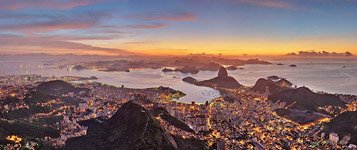 Rio de Janeiro #3
Rio de Janeiro #3
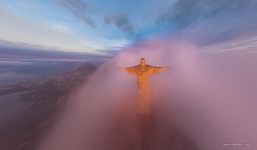 Christ the Redeemer Statue #4
Christ the Redeemer Statue #4
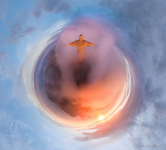 Mount Corcovado in the foggy morning. Planet
Mount Corcovado in the foggy morning. Planet
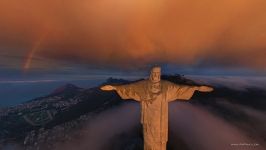 Christ the Redeemer Statue #7
Christ the Redeemer Statue #7
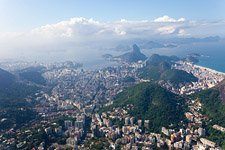 Rio de Janeiro #12
Rio de Janeiro #12
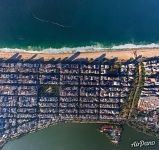 Ipanema beach
Ipanema beach
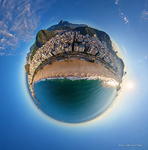 Copacabana beach. Planet
Copacabana beach. Planet
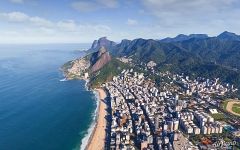 Leblon beach
Leblon beach
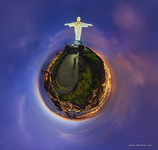 Christ the Redeemer Statue at night. Planet
Christ the Redeemer Statue at night. Planet
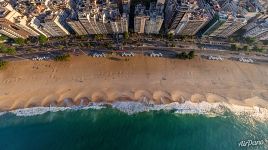 Copacabana beach
Copacabana beach
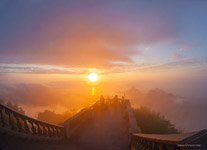 Rio de Janeiro #9
Rio de Janeiro #9
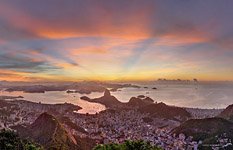 Rio de Janeiro #18
Rio de Janeiro #18
Virtual Travels in 360°
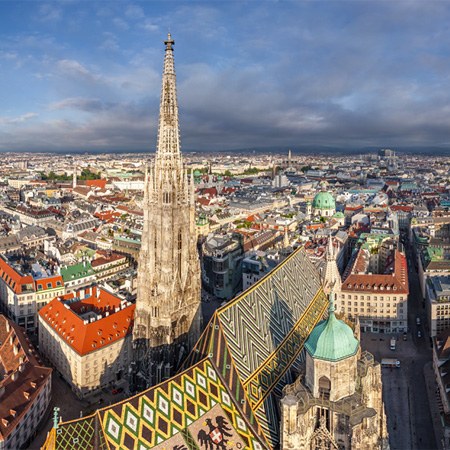 Vienna, Austria
Vienna, Austria
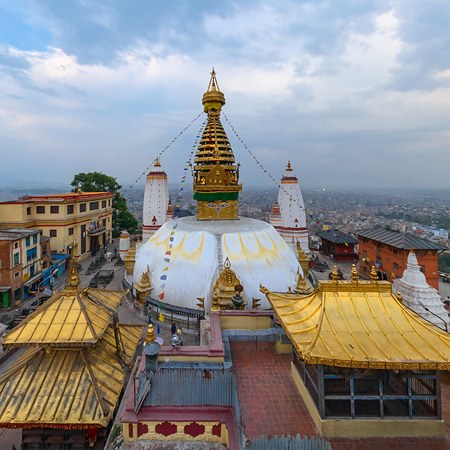 Kathmandu, Nepal
Kathmandu, Nepal
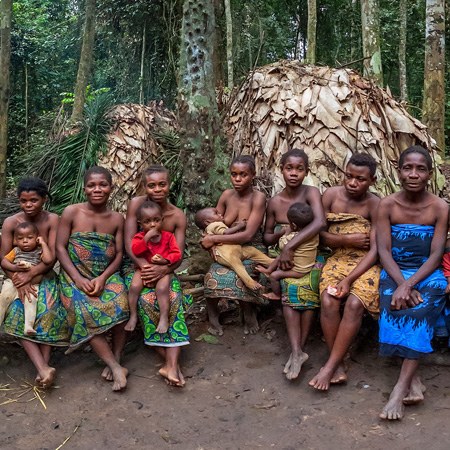 Baka people in Cameroon
Baka people in Cameroon
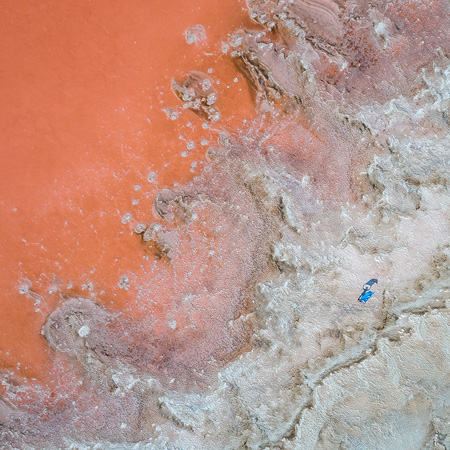 Yevpatoria and Sasyk Lake, Crimea
Yevpatoria and Sasyk Lake, Crimea
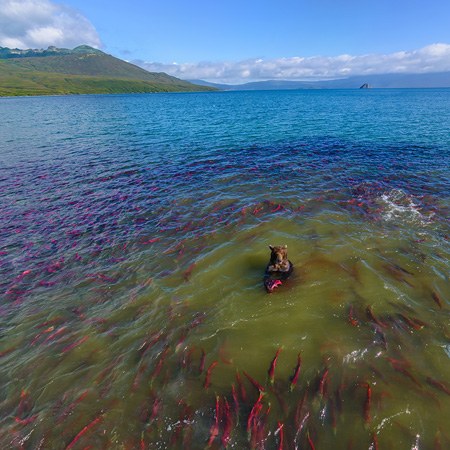 The Land of Bears, Kurile Lake, Kamchatka, Russia
The Land of Bears, Kurile Lake, Kamchatka, Russia
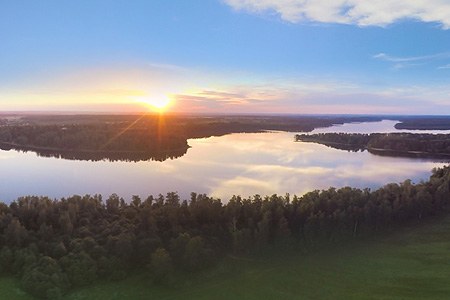 Istra Reservoir, Russia
Istra Reservoir, Russia
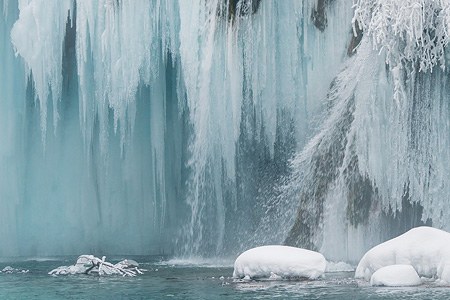 Plitvice Lakes National Park in Winter, Croatia
Plitvice Lakes National Park in Winter, Croatia
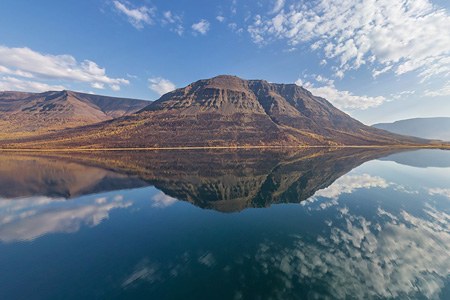 Putorana Plateau, Russia
Putorana Plateau, Russia
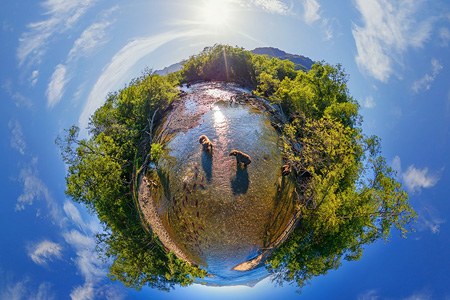 The Land of Bears, Kamchatka, Russia
The Land of Bears, Kamchatka, Russia
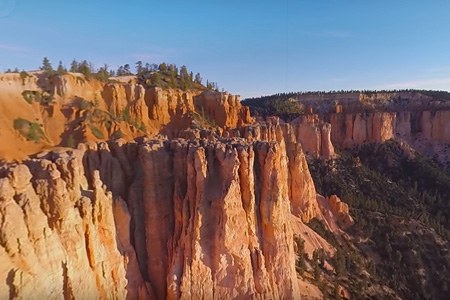 Bryce Canyon, USA. Part I
Bryce Canyon, USA. Part I
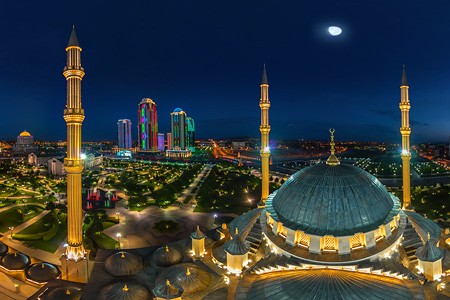 Grozny, Russia
Grozny, Russia
Show more




